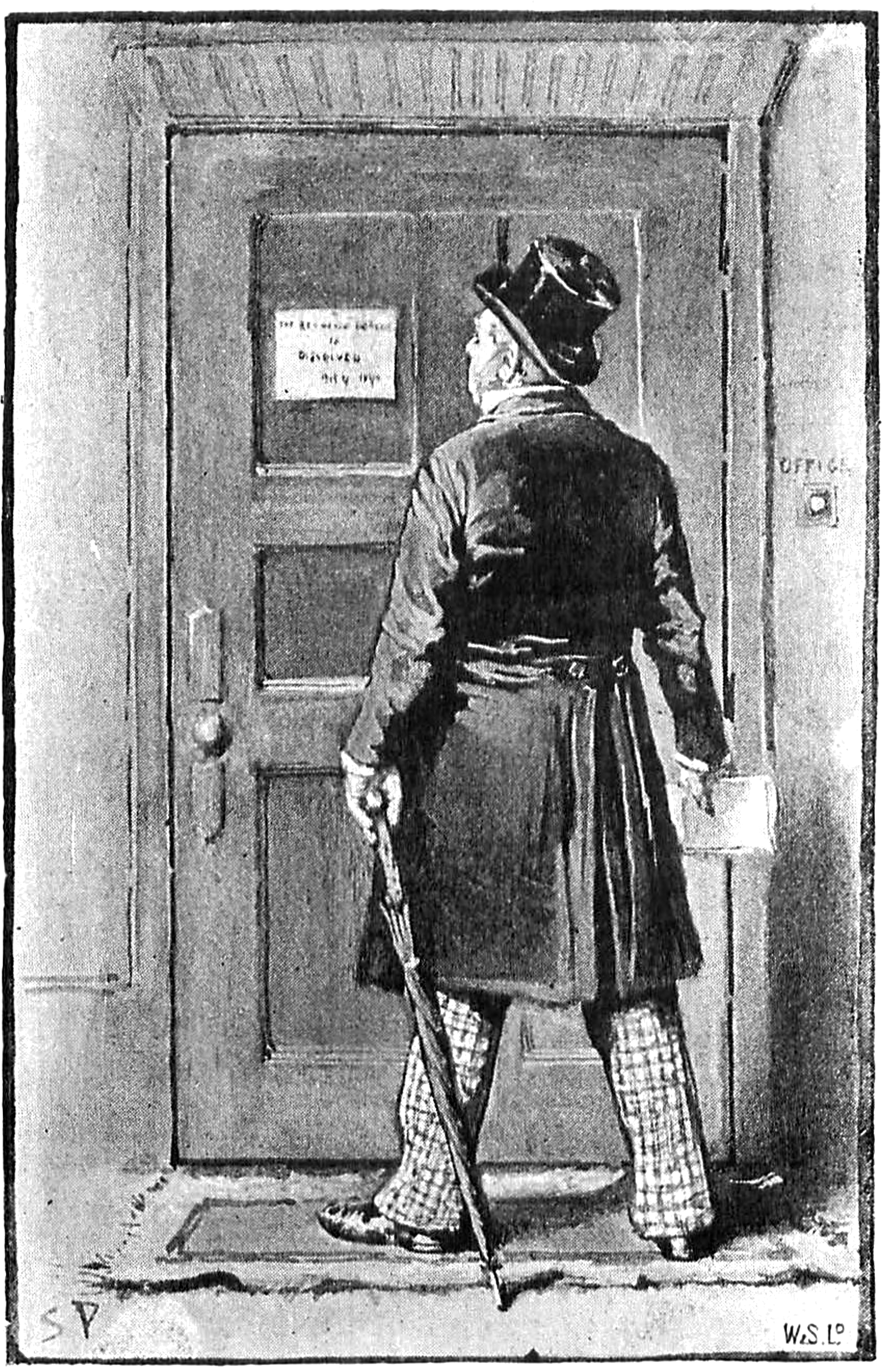"To an end?"
"Yes, sir. And no later than this morning. I went to my work as usual at ten o'clock, but the door was shut and locked, with a little square of cardboard hammered on to the middle of the panel with a tack. Here it is, and you can read for yourself."

"The door was shut and locked."
He held up a piece of white cardboard, about the size of a sheet of notepaper. It read in this fashion:—
"The Red-Headed League
is
Dissolved.
Oct. 9, 1890."
Sherlock Holmes and I surveyed this curt announcement and the rueful face behind it, until the comical side of the affair so completely over-topped every other consideration that we both burst out into a roar of laughter.
"I cannot see that there is anything very funny," cried our client, flushing up to the roots of his flaming head. "If you can do nothing better than laugh at me, I can go elsewhere."
"No, no," cried Holmes, shoving him back into the chair from which he had half risen. "I really wouldn't miss your case for the world. It is most refreshingly unusual. But there is, if you will excuse my saying so, something just a little funny about it. Pray what steps did you take when you found the card upon the door?"
"I was staggered, sir, I did not know what to do. Then I called at the offices round, but none of them seemed to know anything about it. Finally, I went to the landlord, who is an accountant living on the ground floor, and I asked him if he could tell me what had become of the Red-headed League. He said that he had never heard of any such body. Then I asked him who Mr. Duncan Ross was. He answered that the name was new to him."
"'Well,' said I, 'the gentleman at No. 4.'
"'What, the red-headed man?'
"'Yes.'
"'Oh,' said he, 'his name was William Morris. He was a solicitor, and was using my room as a temporary convenience until his new premises were ready. He moved out yesterday.'
"'Where could I find him?'
"Oh, at his new offices. He did tell me the address. Yes, 17, King Edward-street, near St. Paul's.'"
"I started off, Mr. Holmes, but when I got to that address it was a manufactory of artificial knee-caps, and no one in it had ever heard of either Mr. William Morris, or Mr. Duncan Ross."
"And what did you do then?" asked Holmes.
"I went home to Saxe-Coburg-square, and I took the advice of my assistant. But he could not help me in any way. He could only say that if I waited I should hear by post. But that was not quite good enough, Mr. Holmes. I did not wish to lose such a place without a struggle, so, as I had heard that you were good enough to give advice to poor folk who were in need of it, I came right away to you."
"And you did very wisely," said Holmes. "Your case is an exceedingly remarkable one, and I shall be happy to look into it. From what you have told me I think that it is possible that graver issues hang from it than might at first sight appear."
